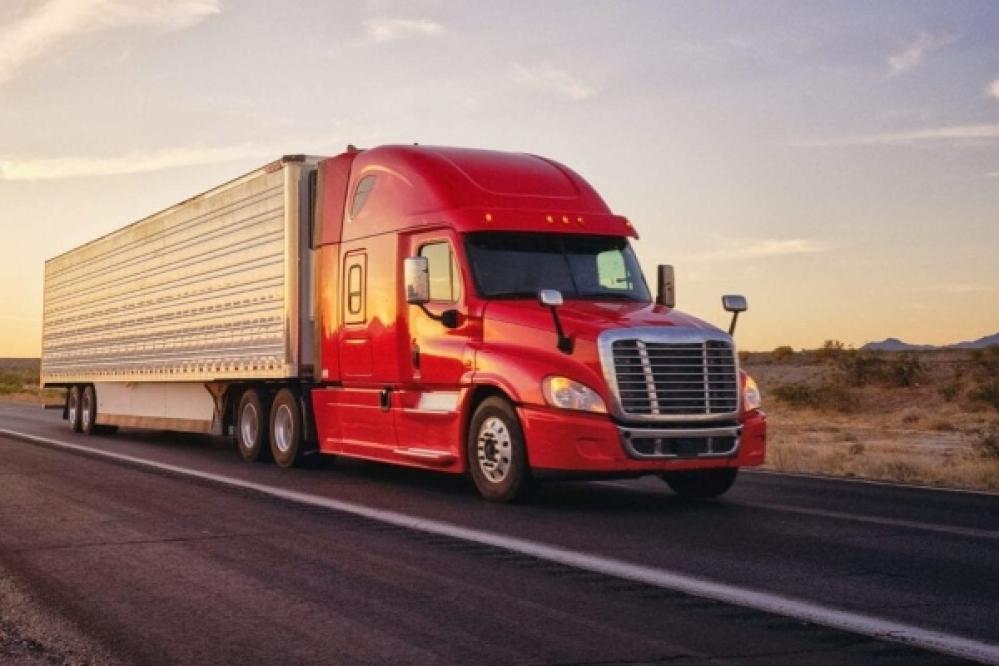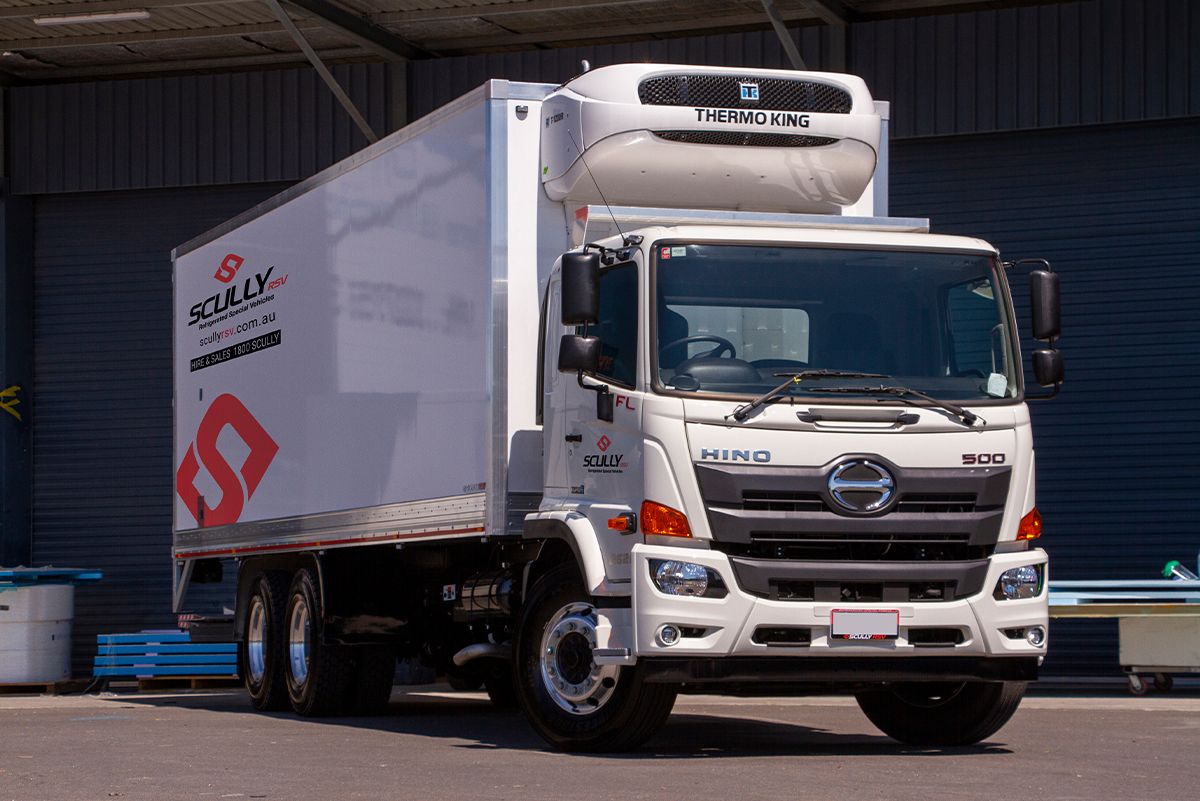Choose Thermo King Truck Refrigeration for Long-Haul Quality
Choose Thermo King Truck Refrigeration for Long-Haul Quality
Blog Article
Leading Innovations in Transport Refrigeration: Enhancing Efficiency and Security
The landscape of transportation refrigeration is undertaking substantial makeover, driven by developments intended at enhancing both effectiveness and safety. As these technologies proceed to advance, it is crucial to discover their ramifications on operational methods and regulative conformity, triggering a better assessment of exactly how they reshape the future of transportation refrigeration.
Smart Temperature Level Keeping Track Of Systems
In the world of transport refrigeration, wise temperature surveillance systems have actually become an essential innovation for ensuring the honesty of temperature-sensitive items. These sophisticated systems leverage Web of Points (IoT) innovation to supply real-time data on temperature level changes, allowing drivers to keep optimal problems throughout the supply chain. By constantly tracking the temperature of chilled containers and lorries, business can swiftly recognize variances that might endanger product high quality.

Furthermore, wise surveillance systems usually incorporate automated informs and notifications, permitting stakeholders to respond promptly to any type of possible problems. This aggressive strategy not only decreases the danger of putridity but additionally boosts compliance with governing standards regulating food safety and pharmaceutical transport.
The assimilation of data analytics within these systems also helps with anticipating upkeep, helping drivers to anticipate prospective equipment failings prior to they take place. This capability decreases downtime and enhances operational efficiency, ultimately leading to cost financial savings.
Eco-Friendly Refrigerants
Smart temperature level tracking systems play a vital duty in maintaining item high quality, but the efficiency of transportation refrigeration likewise pivots on the option of refrigerants used. In contrast, arising choices like hydrocarbon-based cooling agents and hydrofluoroolefins (HFOs) existing lower GWP options, supplying both effectiveness and sustainability.
These eco-friendly cooling agents not only decrease ecological impact but likewise straighten with international laws focused on eliminating harmful materials. Their adoption can cause boosted power efficiency, eventually lowering operating expense for transportation refrigeration systems. Moreover, the usage of all-natural refrigerants, such as ammonia and co2, has gotten traction as a result of their exceptional thermodynamic residential properties and reduced ecological footprint.
Buying environmentally friendly cooling agents is not merely a governing conformity measure; it represents a critical choice that enhances brand name credibility and promotes client commitment. thermo king truck refrigeration. By prioritizing sustainable techniques, companies can add to a greener future while ensuring the stability of transferred items
Advanced Insulation Materials
Using sophisticated insulation materials is vital for optimizing transport refrigeration systems, as they significantly enhance energy efficiency and keep regular temperature control. Typical insulation techniques frequently drop short in preventing thermal transfer, bring about increased energy usage and varying temperatures within cooled compartments.
Arising materials such as vacuum cleaner insulated panels (VIPs) and aerogels use exceptional thermal resistance, allowing for thinner accounts without jeopardizing performance. VIPs, for instance, utilize a vacuum layer to lessen conductive and convective warmth transfer, making them optimal for space-constrained applications. Aerogels, recognized for their light-weight and porous structure, give exceptional insulation while dramatically lowering overall system weight.
Moreover, including stage adjustment materials (PCMs) right into insulation systems can further stabilize temperatures throughout transportation. These materials absorb and launch thermal energy, successfully buffering versus outside temperature variants.
The integration of these sophisticated insulation materials not just minimizes the operational expenses connected with energy consumption but also prolongs the rack life of temperature-sensitive products. As the transportation refrigeration industry proceeds to advance, the fostering of innovative insulation innovations will certainly be essential in enhancing both efficiency and safety in chilled transportation.
Automated Course Optimization
The performance of transport refrigeration systems is substantially improved with automated path optimization, which leverages real-time information and sophisticated formulas to identify one of the most efficient courses for shipment. By analyzing various factors such as web traffic patterns, weather, and delivery home windows, these systems can dramatically decrease travel time and fuel usage.
Automated course optimization minimizes human error and subjective decision-making, which can lead to inadequacies. This innovation makes it possible for fleet supervisors to assign sources better, guaranteeing that chilled items keep their required temperature throughout the trip. By enhancing courses, business can also improve consumer satisfaction through timely distributions.
Additionally, automated systems can adapt to unpredicted conditions, such as road closures or sudden website traffic spikes, enabling vibrant rerouting. This versatility not only protects the honesty of temperature-sensitive products but likewise adds to total functional performance.
Implementing automated path optimization can cause substantial expense savings while reducing the carbon impact associated with transportation. As companies significantly prioritize sustainability, this innovation stands apart as a vital thermo king transport refrigeration component in modern-day transport refrigeration, aligning operational goals with environmental obligation. Inevitably, automated path optimization stands for a considerable development in the quest for effectiveness and safety in transport refrigeration.

Real-Time Data Analytics
Automated path optimization considerably gain from the assimilation of real-time information analytics, which offers vital insights into the performance of transportation refrigeration systems. By using real-time information, transport drivers can monitor temperature variations and equipment performance, making sure that perishable goods are maintained within needed specifications throughout transportation. This positive strategy not just improves the quality of the transferred products yet additionally reduces the risk of perishing and loss.

In enhancement to enhancing effectiveness, real-time analytics boosts safety by making sure compliance with regulative requirements for temperature control. This not only safeguards public health and wellness but likewise strengthens a business's reputation - thermo king transport refrigeration. As the transportation refrigeration market progresses, the assimilation of real-time data analytics emerges as a cornerstone for driving development, sustainability, and functional excellence
Final Thought
In verdict, the improvements in transport refrigeration dramatically improve both effectiveness and safety within the market. Collectively, these technologies stand for an important evolution in transport refrigeration, guaranteeing compliance with governing requirements and promoting a greener future.
The landscape of transportation refrigeration is undertaking considerable transformation, driven by developments aimed at improving both performance and safety and security.Smart temperature monitoring systems play an important role in keeping product quality, however the effectiveness of transportation refrigeration also pivots on the choice of refrigerants utilized. Their fostering can lead to improved energy efficiency, inevitably reducing operating expenses for transportation refrigeration systems. Ultimately, automated course optimization stands for a considerable improvement in the pursuit for performance and security in transportation refrigeration.
In final thought, the innovations in transportation refrigeration significantly enhance both efficiency and safety within the sector.
Report this page